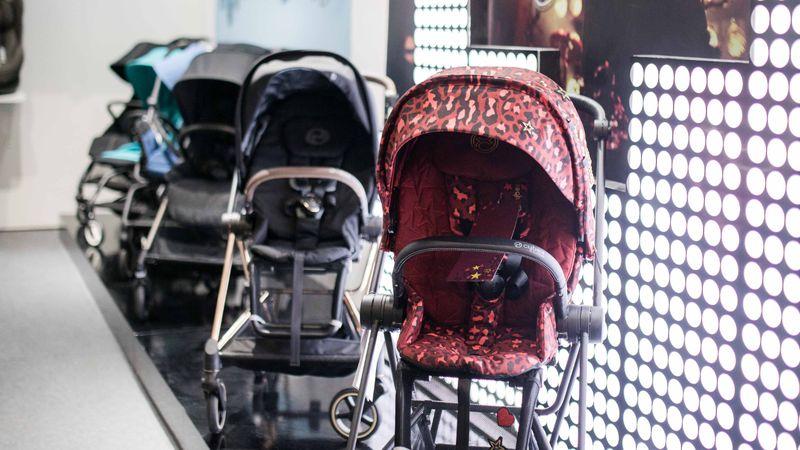
10 Most Asked Questions About Newborn Diapers, Answered!
One of the most crucial choices new parents must make is to select the RIGHT diapers for your lil’ bub.
Making the wrong decision can have a variety of negative effects, including the loss of precious time, unpleasant circumstances, or even nasty accidents that are every parents’ nightmare.
But worry not, because your parenting buddy is here to help!
Whether you're a first-time parent or looking for fresh insights, TCE Baby Tips are your go-to resource and we will walk you through the most completed process of selecting the ideal diapers.
[1] Cloth Diapers or Disposable Diapers?
When it comes to diaper choices, these two options are very depending on your choice and there’s no right or wrong as both sure have their pros and cons.
Cloth diapers are cost effective in the long run because they can be reused, not to mention that they are more environmentally friendly too.
However, it’s important to note that cloth diapers require regular washing and maintenance.
If you are busy, disposable diapers could save you from excessive laundry jobs and carrying dirty diapers with you if you are required to change diapers on the go.
Although some claim that cloth diapers are more comfortable and it allows for easy detection of moisture so parents are more likely to detect when there’s an opps moment and able to prevent baby buttock from soiling in the dirty diaper for too long. However, this also means that cloth diapers’ absorption is not as good as disposable diapers.
But as the time goes by, we do have more disposable diapers brands that are focusing on comfort and softness for baby skins, as long as your lil’ bub is constantly dry.
[2] How to prevent diaper rash
Diaper rash is the No1 concern among parents. To prevent it, make sure the diaper area stays clean and dry all the time.
Diapers changes ought to be done regularly by parents to avoid prolonged exposure to moisture to prevent irritants.
Additionally, putting on a barrier forming ointment or cream is also recommended for an additional protection layer to the diaper area.
[3] How frequently should I change my baby’s Diapers?
Recommended timeframe: Every 2 to 3 hours during the day. This regular interval minimizes the risk of irritation or discomfort brought on by prolonged exposure to dampness and helps maintain a clean and dry environment.
Diaper Indicator: Certain diapers come with moisture indicators that change the color when the diaper is wet to assist you in determining when it's time for a diaper change.
Responding to Your Baby: Babies are not able to speak, but they show signs- such as fussiness, restlessness, or uneasy body language when their diapers need to be changed.
[4] How to properly wear a diapers
Step 1: Clean the diaper area with clean cloth or water moistened wipes (baby skins are sensitive and could cause skin irritation using baby wipes in the first few weeks)
Step 2: Apply any ointment or cream for additional barrier.
Step 3: Put on the clean diaper and ensure that it’s snug but not too tight, as overly tight diapers may cause diaper rash too.
[5] How to Prevent Leakage?
To prevent leaks, make sure the diaper’s sides fit securely but not too tightly around your baby’s legs.
In order to achieve a secure fit, choosing the right diaper size is essential (will talk about it in the next section), and taking into account like absorption capacity, time spent wearing and the particular style specially designed for leak prevention.
[6] Should You Change Your Baby’s Diapers at Night?
Most newborns don’t typically sleep through the night (6-8 hours) until they are at least 3 months old (this can vary).
Most cases, they will be awake and ready to eat every 3 hours. As a parent, this is your chance to check on their diapers and change them when necessary..
When your baby starts to develop a longer sleep pattern, you can start to consider nighttime diapers to guarantee that your baby stays dry all night.
Just keep in mind that overnight diapers do cost more than standard diapers.
[7] What if Your Newborn is Uncooperative in Wearing Diapers?
Almost all babies scream when we change their diaper at the early stage. Some reasons could be that they are cold, hungry, and uncertain of what's going on.
By understanding these, you can transform terrifying diaper change moments into bonding time.
Try to use diversion such as toys and engaging activities, along with creating a pleasant environment through lullabies or gentle conversation.
Remember, a diaper change may be more than simple a chore, they can also be a great bonding experience.
[8] How do I Choose the Right Diaper Size?
You may use the below guideline for choosing the right diaper size. However, sizes could differ among brands, so pay attention to the supplied weight recommendations.
- NB: 0-1 month; weight: 0~5KG
- S: 1-3 month; weight 4~8KG
- M:3-6 month; weight 6~11KG
- L: 6-12 months; weight: 6~11KG
- XL: 12-17 month; weight: 9~14KG
Other indication when it's time to change:
- If you can’t comfortably fit two fingers under the diaper’s b waistband
- Red spots start to appear every time on your baby’s thighs or stomach after removing the diapers.
- If the diaper isn’t completely covering your baby’s bottom.
[9] Umbilical cord care
You don’t have to worry about the stump as it will fall off naturally within 10 days to 3 weeks after birth.
During these moments, it is encouraged to promote airflow and prevent wearing clothing that is too tight around the tummy.
Also, you can consider getting notched diapers or fold down the edge of the regular diapers for better airflow.
[10] Price Concern When Choosing the Right Diapers
Given that disposable diapers are a recurring expense, a baby will need 4000-6000 pieces of diapers on average per year. Hence, budget planning is crucial.
Don’t know which diapers to choose? Come to the 42nd TCE Baby Expo, 6-9 July, you can get all the free samples you want and try out every diaper under 1 roof. Diaper discount up to 50% too, see you three.







